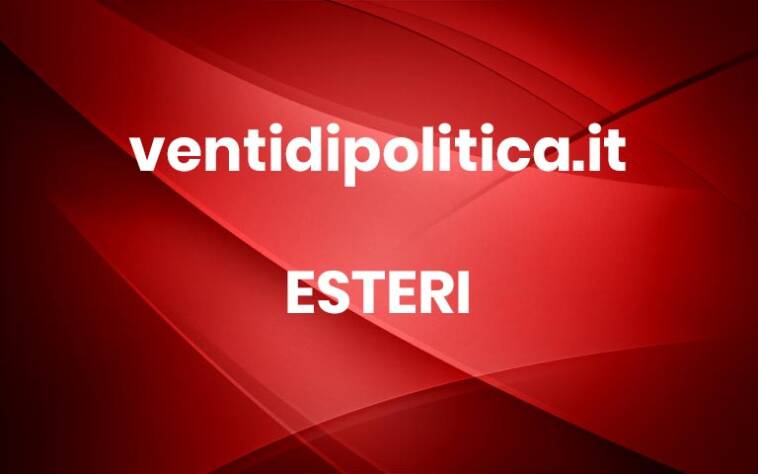La Finlandia sulla strada della NATO: “Non è vero che siamo neutrali. Ma serve una riflessione sui tempi dell’adesione”
Bruxelles – Un processo che sembra apparentemente irreversibile. Dopo l’invasione russa dell’Ucraina, la Finlandia si sta spingendo sulla strada dell’adesione all’Organizzazione del Trattato dell’Atlantico del Nord (NATO), una decisione che sarebbe epocale, ancor più se accompagnata dall’allineamento anche della vicina Svezia, e che fino a due mesi fa non sembrava nemmeno lontanamente plausibile. Per la prima volta dal secondo dopoguerra a oggi Helsinki potrebbe abbandonare il tradizionale non allineamento militare, che emergerà con più certezza dal confronto tra le forze politiche attualmente in corso all’Eduskunta (il Parlamento monocamerale) sul rapporto strategico sulla sicurezza del Paese, presentato due settimane fa dall’esecutivo guidato da Sanna Marin.
Un dibattito che si imposta su un cambiamento di percezione del pericolo russo e di priorità sulle questioni della difesa da parte dei cittadini finlandesi e sulle riflessioni sul breve e medio periodo da parte del mondo accademico. Come confermato a Eunews da Juha Jokela, direttore del programma di ricerca sull’Unione Europea al Finnish Institute of International Affairs, nel corso di un’intervista sul bivio presente per la storia del Paese e sugli scenari futuri di una possibile adesione della Finlandia – e della Svezia – sullo scacchiere geopolitico baltico ed europeo.
Eunews: Dottor Jokela, che idea si è fatto della svolta finlandese sulla questione NATO?
Jokela: “Prima di tutto bisogna puntualizzare che non è corretto parlare di neutralità della Finlandia, come leggo spesso sugli organi di informazione. Piuttosto possiamo dire che non siamo schierati militarmente, anche se ci siamo legati all’Organizzazione del Trattato dell’Atlantico del Nord con una cooperazione rafforzata e da decenni va avanti la politica di approfondimento dei rapporti con i partner. La Finlandia ha sempre concepito l’opzione di aderire alla NATO, se lo scenario internazionale di sicurezza fosse cambiato. E ora, dopo l’invasione russa dell’Ucraina, vediamo chiaramente questa possibilità, ecco perché è possibile affrontare questo discorso a livello di dibattito pubblico nazionale”.
E: A proposito, come viene percepita dalla popolazione questa possibile scelta?
J: “Quello a cui stiamo assistendo è un vero cambiamento di posizione proprio a partire dalla popolazione finlandese, tra il prima e il dopo lo scoppio della guerra in Ucraina. Normalmente il supporto nei confronti della NATO si attestava attorno al 20 per cento dei cittadini, ma, secondo quanto emerge dai sondaggi, dopo due giorni dall’invasione russa è salito al 50 e ora è tra il 60 e il 70 per cento. La popolazione si sta interrogando ed esprimendo sulla questione, adesso è arrivato il momento della scelta della sfera politica, a livello governativo, parlamentare e presidenziale”.
E: Proprio ora al Parlamento è in corso il dibattito tra le forze politiche. Cosa si aspetta ne possa emergere?
J: “L’unica potenziale discussione non è tanto se aderire alla NATO, quanto piuttosto se questo processo si stia sviluppando troppo rapidamente. Dobbiamo considerare seriamente le conseguenze sul piano della sicurezza, i pro e i contro di questa scelta sugli affari esteri del Paese. Il dibattito in Parlamento è stato voluto dall’esecutivo stesso per avere l’appoggio del potere legislativo sulla scelta, il white paper del governo non offre nessun suggerimento sulla politica da adottare proprio perché chiede una riflessione aperta tra partiti e deputati. Penso che un accordo sull’opinione del Parlamento sia una questione di settimane, non di mesi, e poi sarà affidata la decisione finale al governo e al presidente”.
Da sinistra: la prima ministra della Svezia, Magdalena Andersson, e della Finlandia, Sanna Marin (Stoccolma, 13 aprile 2022)
E: In caso di richiesta di adesione alla NATO da parte della Finlandia, quanto è probabile che la Svezia faccia altrettanto?
J: “È evidente che la tensione militare in atto, iniziata già nel 2014, ha cambiato gli scenari di sicurezza per tutta la penisola scandinava. In questo periodo si sono strette le relazioni bilaterali tra Svezia e Finlandia in materia di difesa, con una cooperazione intensa anche sulla questione NATO. Proprio per il forte legame che si è creato, i due Paesi hanno canali diplomatici diretti per evitare che un cambiamento improvviso di posizioni di un partner vada a destabilizzare l’altro. Basti solo ricordare che quando a inizio marzo il presidente della Finlandia, Sauli Niinistö, è stato ospite dell’omologo statunitense, Joe Biden, durante l’incontro c’è stata una telefonata anche con la prima ministra svedese, Magdalena Andersson. Questa relazione riflette l’importanza strategica della stabilità nel Baltico, che ha un impatto anche su quella della regione artica, e nonostante Finlandia e Svezia stiano pensando alle proprie questioni di sicurezza nazionale, la loro decisione avrà un impatto significativo sullo scacchiere di tutta l’Europa”.
E: È preoccupato per una possibile reazione dura da parte della Russia? Cosa rischiano Finlandia ed Europa?
J: “Da un certo punto di vista, Helsinki è preparata per una minaccia militare diretta, già vediamo movimenti di truppe russe lungo il confine con la Finlandia, lungo 1.340 chilometri. Ma siamo più preoccupati per l’area grigia di un conflitto che contempli minacce ibride, come gli attacchi informatici, o l’invio forzato di persone ai confini. Evidentemente, ci sono implicazioni dirette su una possibile escalation di tensione con la Russia, ma l’eventuale decisione di aderire alla NATO è uno strumento legittimo di cooperazione con gli alleati transatlantici contro l’approccio aggressivo della Russia. Perché se è vero che non siamo neutrali, ma solo militarmente non schierati e già radicati nell’Alleanza, non va nemmeno dimenticato che nel caso di aggressione esterna per noi non si applica l’articolo 5 del Trattato del Nord Atlantico. Quello che afferma che un attacco contro un alleato è un attacco contro ogni componente dell’Alleanza”.
Intervista a Juha Jokela, direttore del programma di ricerca sull’UE al Finnish Institute of International Affairs. “Stiamo assistendo a un cambiamento di posizione a partire dai cittadini. Ma la politica deve considerare seriamente le conseguenze sul piano della sicurezza del Paese” LEGGI TUTTO


